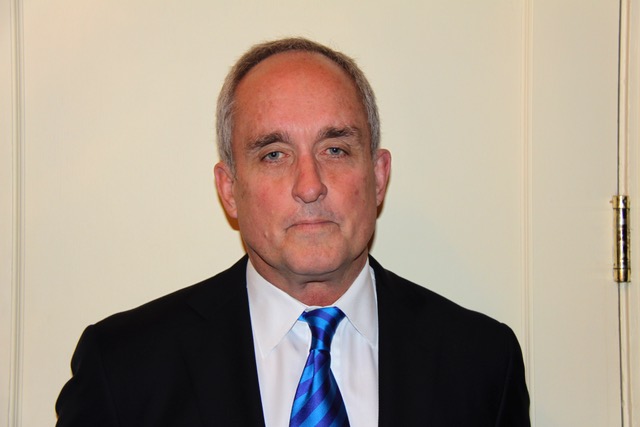
BY JUDY CARMACK BROSS
“Until now, the focus of much investigative journalism has been on finding structural failings in government. Solutions journalism takes that a step further: applying the rigor of investigative reporting to what seems to be working. If we can find what works, and prove it with the same level of certainty that we apply to traditional investigations, this offers some hope. Our problems, as significant as they are, can be addressed,”
–David Greising, President and CEO, The Better Government Association
With a Pulitzer Prize in hand; a partnership with the Robert R. McCormick Foundation, which will grant $10 million over the next five years; and the opportunity to recruit some of the finest reporters in the country, the Better Government Association will launch the Illinois Solutions Partnership with a website in September, directly impacting local and state journalism.
“Our reporters not only invest in issues but also in possible solutions,” Editor-in-Chief Reinaldo Ramos explains. “They will start with an issue, looking at it with critical eyes, evaluating what has really worked in other situations and locations, and have the good sense to know what could really make a difference. It is a new way of looking at things, and we will now have the tools to do it and always in a non-partisan way. It stops short of advocating for specific policy options.”
BGA leaders, including Board Chair Paulette Dodson, as well as Timothy Knight, President and CEO of the Robert R. McCormick Foundation, recently welcomed a group of supporters to a briefing at the Arts Club. Greising asked a group of Chicago leaders to name some of the city’s most urgent challenges and by the program’s close, there was a tangible optimism in the air.
“The exercise of asking the audience what problems facing the city and state are most on their minds has several purposes. First, it is important for us as journalists to know this information. It can help inform story judgments, can help us decide where to direct our investigative and solutions reporting, can let us know what issues will resonate,” Greising says.
“And if we do so effectively, then people are more likely to read our stories. They’re more likely to be motivated by them and ultimately, they’re more likely to get involved, to become supportive of the demand for better, and perhaps even get personally involved in working toward solutions.”
Timothy Knight, The Robert R. McCormick Foundation’s President and CEO, adds, “We are confident the Illinois Solutions Partnership will make an important impact in helping our city and state identify and pursue solutions to key challenges we are facing. Solutions journalism presents a new way to provide ideas for reform to the public and policymakers. Beyond investigating the issue, we expect to uncover solutions to address the issue and empower Illinois-interested news consumers to hold their government accountable and actively participate in their democracy.”
Carroll Joynes, University of Chicago Senior Research Fellow and co-author of Building Better Arts Facilities: Lessons from a U.S. National Study, has served as a member of the BGA Board for almost nine years. “The BGA’s goals are very strategic as we build out this high quality digital local news hub. At the moment, many Illinois citizens are quite skeptical about government’s capacity to address the many problems we currently face, but the fact remains that for many large-scale, systemic problems, government is the only entity that has the capacity to tackle these,” Joynes reports.
“Collaborating closely with other independent newsrooms like WBEZ/Sun-Times and Block Club, which are now part of the changing face of journalism here, the BGA is committed for the long term to provide reliable local news in Chicago and across Illinois,” he continues. “A number of similar news organizations around the country are closely watching this project, and our work will hopefully result in similar solutions-based journalism newsrooms appearing across the country.”
In May the BGA and the Chicago Tribune won a Pulitzer Prize for local reporting, one of the highest awards in journalism, for “The Failures Before the Fires,” adding to the momentum of the current effort. The series exposed the city’s failure in keeping residents safe from deadly fires in dangerous residential buildings.
“It was just a great moment to celebrate with the staff, it’s like winning Oscars in our field, and a great moment in BGA history,” Ramos shares. “We have a great track record for doing robust journalism, and we feel that the website can be seen as one-stop shopping with articles focusing on government finance and accountability, education, equity issues, and access to services.”
The expanded newsroom, a focus on key issues in need of reform, an investigative journalist based in Springfield, collaborative reporting partnerships, newsletters, podcasts, data visualization, social media, and other initiatives will be part of the process. The BGA Solutions Laboratory will convene small groups of problem solvers, some with government experience, to build bipartisan solutions.
For 99 years, BGA’s newsroom has uncovered government inefficiency, inequities, and failures to serve constituents and communities. The watchdog organization has used deep-dive investigations and collaborations with other news organizations to expose life and death issues, criminal justice system failures, and Medicaid fraud. Their dedication has resulted in federal investigations, criminal indictments, legislative reforms, and policy changes. From ethics reform to fair electoral maps to open meetings and open records, BGA researches and proposes policy reforms and advocates for election reforms.
Currently Ramos, formerly the executive of the non-profit news site The Daily Memphian, and his team are recruiting reporters from across the country: “We have one of the most diverse newsrooms, expertise in many areas, and deep local sources. We are taking a very sophisticated team approach studying what has worked elsewhere, what obstacles and opportunities there are, and the cost. We think readers will be much more informed. We need to find the best ways to hold our leaders accountable.”
To learn more about Solutions Journalism and the Better Government Association, visit bettergov.org.














